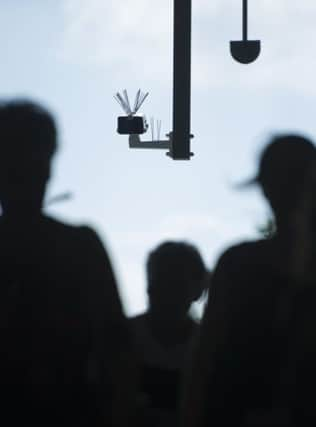Current facial recognition technology ‘is not fit for purpose’, say MSPs


Holyrood’s justice sub-committee on policing has told the force that before introducing the technology, it has to “demonstrate the legal basis” on which it would be used.
And the report calls for the Scottish Government to “explicitly regulate” the use of live facial recognition tech, which would cover private companies and the public sector as well as the police.
Advertisement
Hide AdAdvertisement
Hide AdThe committee said there were serious issues around compliance with human rights and data protection legislation, and concerns about “bias” in the technology which could discriminate against ethnic minorities and women. Without safeguards in place, MSPs have warned that “any investment in the technology would be unjustifiable”.
The report also recommends that the Scottish Police Authority and the new Scottish Biometrics Commissioner – when the post is created – review the use of retrospective facial recognition technology to consider the impact of police accessing images held illegally on the UK Police National Database, or on IT systems inherited from legacy Scottish forces, which contain images of people not convicted of any crime.
Convener John Finnie said that while MSPs were “reassured Police Scotland have no plans to introduce live facial recognition technology at this time” the committee’s inquiry had made it clear it was “in no fit state to be rolled out or indeed to assist the police with their work.”
He added: “Current live facial recognition technology throws up far too many ‘false positives’, and contains inherent biases that are known to be discriminatory.
“Our inquiry has also shone light on other issues with facial recognition technology that we now want the Scottish Police Authority and the Scottish Government to consider. Not least amongst these are the legal challenges against similar technologies in England and Wales, and the apparent lack of law explicitly governing its use in Scotland – by any organisation.
“So whether this technology is being used by private companies, public authorities or the police, the Scottish Government needs to ensure there is a clear legal framework to protect the public and police alike from operating in a facial recognition Wild West.”
Police Scotland has previously outlined its ambition to introduce “live” facial recognition technology in its Policing 2026 strategy.
The technology works by flagging up suspects in real time by cross-referencing “live” images picked up by CCTV cameras against police databases.
Advertisement
Hide AdAdvertisement
Hide AdHowever, the report says that Police Scotland’s assessment that the technology would have “a positive impact on equalities and human rights” stands in stark contrast to the evidence received by the sub-committee.
A Scottish Government spokesperson said: “While we support Police Scotland in using technology to keep our communities safe – and technological advances in biometrics have brought huge benefits to police and other justice agencies in detecting, preventing and prosecuting crime – the use of this technology clearly raises a number of ethical and human rights considerations.”
“We are determined to ensure that the approach to biometric data used for the purposes of policing and criminal justice in Scotland is not only lawful, but also effective and ethical.”